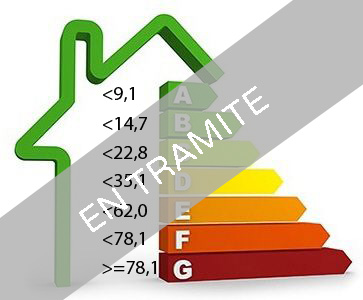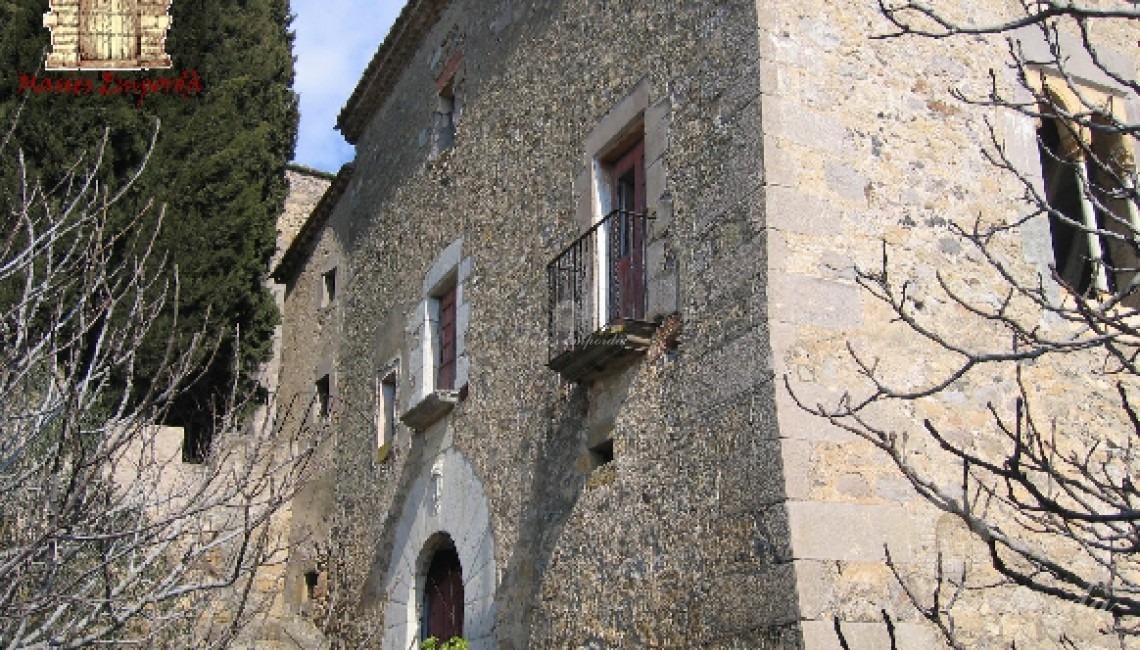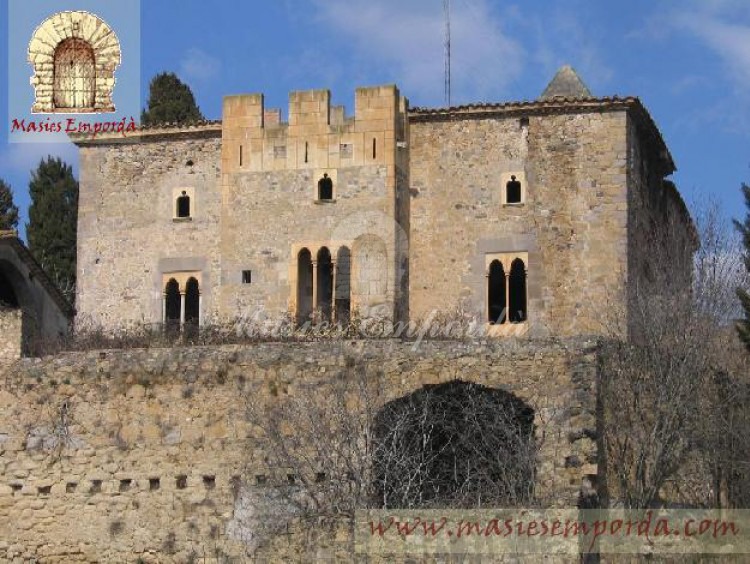Castle for sale from the 11th century in the Alt Empordà region. Girona. Spain.
Description
Description
Buildings: 4 (castle + traditional country house + service house + 2 attached houses = 2.234 sq m)
- Castle: Built in the 14th and 15th century. 1.142 sq m. Split in 3 floors. Impressive watchtower. Unrestored.
- Traditional country house: Built in the 17th century. 664 sq m. It needs to be restored.
- Service house: Built in the 16th century. 428 sq m. Split in 3 floors. It needs to be restored.
- Attached houses: Unrestored.
Plot: 10,800 m2 of farmland and forests. The river Fluvià passes close to the property.
Installations
Water: Yes
Electricity: Yes
Location
Closest settlement: Arenys de l’Empordà (1 km)
Distance to Figueres town: 10 km
Distance to the closest beach: 24 km (Empuriabrava)
Distance to the French border: 45 km
Distance to Girona city: 30 km
Distance to Girona’s airport: 30 km
Distance to Barcelona: 135 km
Distance to Barcelona airport: 135 km
This property is also close to:
Les Gavarres: Mountain massif, part of the Catalan Coastal range. From some points, there are views of both the Mediterranean Sea and Pyrenean peaks. Most of Les Gavarres is a nature reserve and as an extension of volcanic Garrotxa, the mountains are generally formed of granite rock and covered in dense forests of corn oak, holm oak and pine that surround Romanesque churches, dolmens and megalithic sepulchres. An idyllic spot for hiking, trekking, rock climbing and cycling.
Monells, Peratallada, Palau-Sator and Pals villages: Group of medieval villages with historic-artistic monuments, castles, palaces, beautiful stone buildings, rutted stone streets and passageways, cosy restaurants and cafés, stylish boutique hotels and art galleries.
Begur, Tamariu, Llafranc and Calella de Palafrugell seaside villages: Group of old fishing villages that have managed to retain their individuality and charm and have not been overdeveloped.
Sa Tuna, Sa Riera, Platja Fonda, Fornells and Aiguablava beaches: The most prestigious, untouched and underdeveloped seaside spots in central Costa Brava.
Medes Islands (L’Estartit): Small and craggy group of seven protected islets that have an important and diverse marine reserve. An authentic paradise for scuba divers.
Castle of Púbol: Home to surrealist painter Salvador Dalí and his wife Gala (buried here). It is currently a museum open to the public and it is part of the Dalinian triangle along with Portlligat and Cadaqués villages. The stunning and peaceful village where the castle is, Púbol, has managed to keep its medieval flair.
Garrotxa Volcanic Zone Natural Park: Extremely well preserved natural park that covers 12.000 ha of volcanic fields with 40 inactive volcanoes. Each volcano represents a single period of eruption. The last eruption occurred 11.000 years ago. In this natural park there is one of the most famous beech woods in Spain, the Fajeda d’en Jordà. It possesses exceptional and stunning sceneries, as it is mainly a flat forest that sits on a lava flow formation.
Lake of Banyoles: Natural lake located in a tectonic depression, in Banyoles town. It was the venue for the rowing events in 1992 Barcelona Olympics. Idyllic walks and pleasant cycling routes surround the lake.
Cap de Creus Nature Reserve: The most easterly point of the Iberian Peninsula, only 25 km South of the French border, and the site where the Pyrenees mountains meet the Mediterranean Sea. Its extraordinary rocky lunar landscapes, untouched small bays, local flora and rare species of sea birds make it unique place. It is considered an underwater paradise for divers and a magnificent natural park for hikers.
Cadaqués: Spectacular old fishing village that attracted artists as famous as Salvador Dalí, Pablo Picasso or Joan Miró. Bohemian and sophisticated at the same time, the village has managed to keep its charm and spirit by protecting its stunningly beautiful old quarter, which is famous for its little narrow streets, whitewashed houses and churches, small cafés and restaurants, art galleries and museums.
Location























